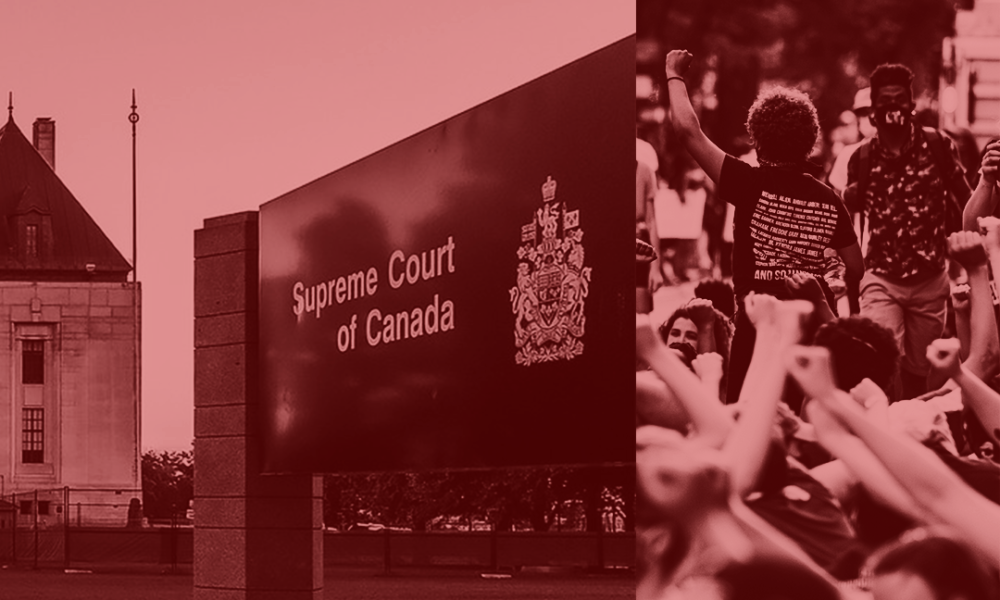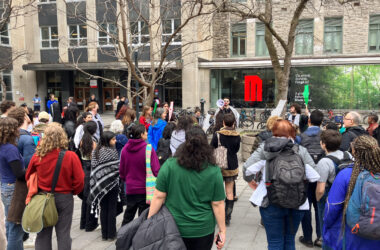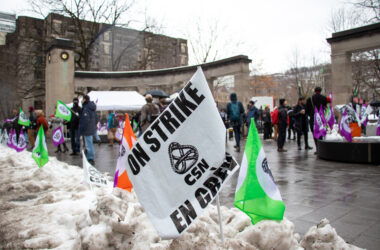McGill’s Max Bell School of Public Policy and the Faculty of Law’s Centre for Human Rights and Legal Pluralism hosted a conference on Nov. 25 titled “Humour, Hate and Harm: Rethinking dignity, equality and freedom of expression after the Supreme Court’s decision in Ward v. Quebec.” The five-hour discussion featured three panels that discussed the legal and policy implications of the Supreme Court of Canada’s 2021 Ward v. Quebec decision.
The parents of Jérémy Gabriel, a singer from Quebec with Treacher Collins syndrome, brought forth allegations of discrimination against Montreal comedian Mike Ward in 2012 after he delivered jokes mocking Gabriel. After a decade of litigation, the case was brought to the Supreme Court, which acquitted Ward of discrimination in a 5-4 split.
A recording of Ward’s controversial comedy routine was played for the audience in attendance before the talks kicked off.
Seven out of the eight panellists opposed the ruling, including two members of the Quebec Human Rights Commission (CDPDJ), the legal body that represented Quebec in court. Julius Grey, a constitutional lawyer who argued on Ward’s behalf in the Supreme Court, was the lone dissenter. After introductions, Grey began with a critique of the Commission’s stance.
“The importance of the right to express oneself and to say anything that might lead to change […] is essential in any society,” Grey said. “The dissenting judgment simply does not understand the importance of free speech in our society [….] If somebody’s hurt by what you say, and that’s good enough [to prosecute], then you will be effectively removing freedom of expression.”
During a Q&A session, Stéphanie Fournier, who represented CDPDJ in Ward, contested Grey’s responses to audience member questions, after which Grey himself made further rebuttals.
“Intent should […] never be part of the equation to determine whether or not there was discrimination in [a] case, in any case,” Fournier said during the Q&A session. “Free speech should be put aside to protect dignity, in full equality.”
The second panel examined the decision’s implications for racialized and marginalized communities, who are more often targeted by discriminatory speech. It consisted of Fo Niemi, former commissioner of the CDPDJ, Mohammed Hashin, the executive director of the Canadian Race Relations Foundation, and Pablo Gilabert, a philosophy professor at Concordia University.
Gilabert focused primarily on the word “dignity,” a foundational principle in the Canadian Charter of Rights and Freedoms and one which, he explained, gives “freedom of expression” its weight. Hashim and Niemi, on the other hand, analyzed how hate manifests in society and how the law might be able to curtail it. Hashim referenced the General Social Survey, which is conducted every five years across all provinces and gauges the overall well-being of Canadians.
“[Two-hundred and thirty thousand] people in the General Social Survey said that they have faced hate in some form, but only 3,000 of those people actually reported to the police,” Hashim explained. “We need to create funds from the federal and provincial levels so that social service agencies can create [support for] victims of hate […] because right now, just doing it alone seems so isolating and hard and challenging.”
Once all the panels had finished their presentations and a luncheon had been served, Marie-Claude Landry, the Chief Commissioner of the Canadian Human Rights Commission, gave a speech on what she saw as the ethos of Gabriel’s case—that Gabriel, now 25, was only a teenager when Mike Ward mocked him.
“[Children] trust us. They trust that we have their best interests at heart,” Landry said. “We must treat them with care, dignity, and respect.”
After the conference ended, Pearl Eliadis, the event’s host and a McGill law professor, explained the dangers of greenlighting hate speech in an interview with The McGill Tribune.
“[The allowance of hate] forces people to argue for their essential humanity, and erodes their trust in institutions,” Eliadis said. “If you don’t believe in your institutions to represent you, support you, protect you, then you have an entire portion of the electorate that’s disenfranchised.”









